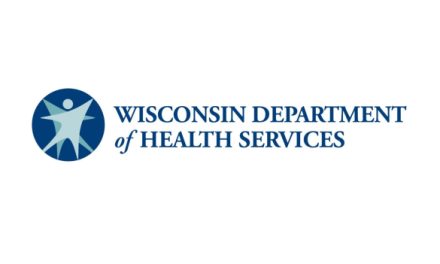
Joint Finance budget: mixed results for Wisconsinites with disabilities
Madison, WI – Joint Finance Committee (JFC) has now completed its work on the state budget. Overall, Disability Rights Wisconsin was encouraged to see some investments that will have a direct positive impact on people with disabilities; however, there were also missed opportunities to help people with disabilities to have healthy, active lives as contributing members of their communities.
On the positive side was JFC’s approval of funding increases for the direct care workforce and the personal care services rates. These increases in Family Care direct care funding ($67 million) and personal care ($91 million) take the first steps in addressing the critical statewide shortage of caregivers who play such an important role in supporting people with disabilities. DRW works with people across the state who are dealing with the workforce shortage; this piece of the JFC’s budget is much appreciated.
DRW was also encouraged to see an increased investment in supports for children with the most significant disabilities by providing the funding to serve an additional 1,000 children currently languishing on waiting lists for the Children’s Long Term Support Medicaid Waiver (CLTS).
Other positive JFC budget items include funding for specialized transportation, the child psychiatry consultation program and the nonfederal share of Medicaid funding for mental health crisis intervention services provided by the counties. Although it was less than the amount requested by the Governor, JFC did approve $2.5 million for dental providers who serve Medicaid recipients with intellectual or physical
disabilities.
The budget approved by Joint Finance fell short by failing to make some critical investments needed by Wisconsin children and adults with disabilities and their families. As the budget moves forward to the full Legislature, there will be additional opportunities for policymakers to support these important investments and ensure they are added to the budget:
- Increasing the state’s share of special education reimbursement to 60% as requested by Governor Evers. After a decade of flat funding, a 60% increase would address the imbalance of the growing deficit in state funding for special education and the ever-increasing costs school districts face to educate children with disabilities.
- Fully funding enhanced school mental health services and related staff needs. JFC approved only $12.5 million of the $63 million proposed by the Governor. The additional funding would support hiring the social workers, school psychologists, counselors and nurses needed by our public schools to provide mental health services.
- Expanding Medicaid eligibility to 138% of the poverty level, which would provide access to BadgerCare for many more Wisconsinites, including those who are currently unable to afford health insurance or who cannot afford the deductibles and copays of their current coverage. Many of these people have disabilities. Medicaid also covers certain services not covered by private insurance such as peer support, personal care, employment supports, case management, and community programs like Comprehensive Community Services. Accepting Medicaid expansion would allow Wisconsin to leverage an additional $1.6 billion in federal funds to cover these key Department of Health Services (DHS) programs in the Governor’s budget.
- Increasing the funding for regional mental health services to support adults experiencing a mental health crisis by allocating $2.5 million to fund regional crisis centers, which would allow individuals in crisis to be assessed and supported closer to their home and natural supports.
- Fully funding physician and behavioral health non-institutional mental health and substance use services. The Governor requested slightly more than $69 million but only $24.7 million was approved by JFC. Medicaid rates in this area have not increased in 11 years. Currently 49 of Wisconsin’s 72 counties are federally designated as mental health provider shortage areas.
- Funding the full package of assistance to families of children with significant disabilities to gain greater access to services in Wisconsin. The Joint Finance Committee accepted the recommendation to create a “one door” system of entry for families but failed to include navigators, resource specialists, and ombudsmen to support families once in the system. While it provided additional funding for the families that are currently on the waiting list, JFC did not eliminate waiting list once and for all for children.
- Funding vital public transportation services for people with disabilities, older adults and caregivers who are non-drivers and rely on public transit. JFC approved a 2% increase instead of the 10% increase requested by the Governor. Transit systems throughout the state are struggling; without a larger budget increase there will need to be cuts in routes and hours of operation. Additionally, specialized transportation funding for people with disabilities and older adults was set at $3 million by JFC despite the Governor’s $6 million request.
- Addressing the crisis in access to dental services for Medicaid members by increasing dental reimbursement rates. The JFC rejected Governor’s budget proposed $58 million in targeted increases for dental providers who serve Medicaid members.
- Increasing funding for the Opening Avenues to Re-entry (OARS) reentry program for individuals with mental illness leaving prison and returning to the community at a level that allows for statewide expansion.
- Providing sufficient funding for creation of juvenile secure residential care centers that will ensure that regional facilities and programing for youth will be able to implement best practices for justice- involved youth and continue the path to closure of Lincoln Hills and Copper Lake juvenile facilities.
While DRW applauds the positive investments made by the Joint Finance Committee in certain areas, more progress must be made on the state’s continuing commitment to people with disabilities. Adequate funding of these programs and services is critical to maintaining equal access to health care, education, successful employment and community integration for people with disabilities.
“This state has a long established history as a leader in supporting people with disabilities to live successful, healthy lives in the community. We cannot afford to miss these important opportunities to keep moving forward” said Executive Director Lea Kitz.





